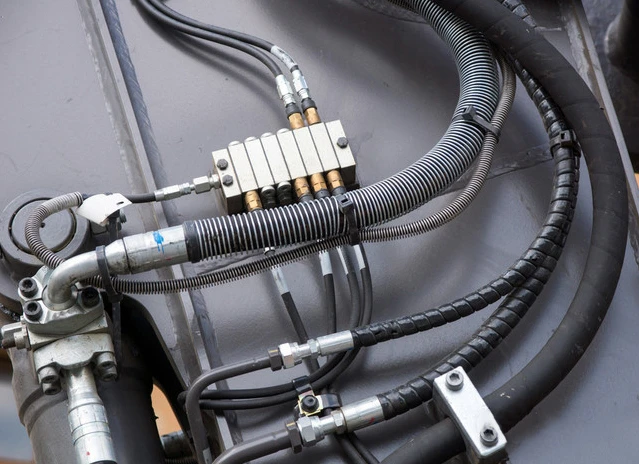Understanding Hydraulic Oil Hoses Their Importance and Applications
Hydraulic systems are integral to various industries, including construction, manufacturing, and automotive. At the heart of these systems lies a crucial component the hydraulic oil hose. These hoses are designed to carry hydraulic fluid to power a range of machinery, making them essential for the smooth operation of hydraulic systems. This article explores the significance, types, features, and applications of hydraulic oil hoses.
What is a Hydraulic Oil Hose?
A hydraulic oil hose is a flexible tube that conveys hydraulic fluid in a hydraulic system. These hoses are specifically engineered to withstand high pressure and extreme temperatures. They typically consist of three main components the inner tube, the reinforcement layer, and the outer cover. The inner tube is made from materials that resist high temperatures and the corrosive nature of hydraulic fluids. The reinforcement layer, often made from steel wire, provides strength and durability, while the outer cover protects against abrasion and environmental factors.
The Importance of Hydraulic Oil Hoses
Hydraulic oil hoses play a pivotal role in ensuring the efficient and reliable operation of hydraulic systems. They are responsible for transmitting the hydraulic fluid that powers machinery and equipment. If a hydraulic hose fails, it can lead to system malfunctions, resulting in costly downtimes and potential safety hazards. Therefore, choosing the right hydraulic oil hose and conducting regular maintenance checks is crucial for the longevity and safety of hydraulic systems.
Types of Hydraulic Oil Hoses
There are several types of hydraulic oil hoses, each tailored for specific applications and requirements. Some common types include
1. High-Pressure Hoses These hoses are designed to handle high-pressure applications, making them suitable for industrial machinery and construction equipment.
2. Low-Pressure Hoses Used primarily in systems that operate at lower pressures, these hoses are ideal for agricultural or lightweight applications.
3. Reinforced Hoses Equipped with multiple layers of reinforcement, these hoses are built to withstand intense pressure and are often used in heavy-duty applications.
4. Thermoplastic Hoses Made from thermoplastic material, these hoses offer flexibility and can be used in a variety of applications, especially where space is limited.
5. Braided Hoses Featuring a braided construction, these hoses provide additional strength and flexibility, making them suitable for dynamic applications.
Key Features
hydraulic oil hose

When selecting a hydraulic oil hose, several key features should be considered
- Pressure Rating Ensure the hose can withstand the operational pressure of your hydraulic system. - Temperature Resistance Different hydraulic fluids have varying temperature ranges; choose a hose that can handle the expected temperatures.
- Chemical Compatibility The inner tube material should be compatible with the hydraulic fluid to prevent degradation.
- Flexibility Depending on the application, you may need a hose that is flexible enough to navigate tight spaces.
- Durability The outer cover should be resistant to abrasion, weather, and other environmental factors.
Applications of Hydraulic Oil Hoses
Hydraulic oil hoses are used across a wide array of industries
- Construction In heavy machinery like excavators and bulldozers, hydraulic hoses are essential for the operation of various functions, such as lifting and pushing.
- Manufacturing Hydraulic systems in manufacturing plants rely on hoses to power machinery for processes like pressing, molding, and cutting.
- Automotive Hydraulic hoses are used in brake systems, power steering, and other automotive applications, where they enable smooth operation and control.
- Agriculture Tractors and other agricultural equipment depend on hydraulic hoses for tasks like plowing, cultivating, and harvesting.
Conclusion
Hydraulic oil hoses are vital components in hydraulic systems, ensuring the system's efficiency, reliability, and safety. Understanding their importance, types, features, and applications can help industries choose the right hoses for their specific needs. Regular maintenance and timely replacement of worn-out hoses can prevent breakdowns and improve the overall performance of hydraulic machinery. Investing in high-quality hydraulic oil hoses is not just a choice; it is a necessity for ensuring operational excellence across various sectors.
Product Application





















